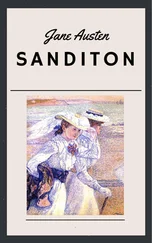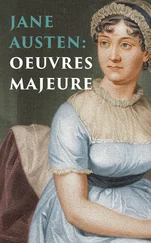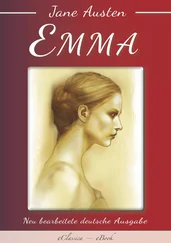Jane Austen - Collins Classics
Здесь есть возможность читать онлайн «Jane Austen - Collins Classics» — ознакомительный отрывок электронной книги совершенно бесплатно, а после прочтения отрывка купить полную версию. В некоторых случаях можно слушать аудио, скачать через торрент в формате fb2 и присутствует краткое содержание. Жанр: unrecognised, на английском языке. Описание произведения, (предисловие) а так же отзывы посетителей доступны на портале библиотеки ЛибКат.
- Название:Collins Classics
- Автор:
- Жанр:
- Год:неизвестен
- ISBN:нет данных
- Рейтинг книги:5 / 5. Голосов: 1
-
Избранное:Добавить в избранное
- Отзывы:
-
Ваша оценка:
- 100
- 1
- 2
- 3
- 4
- 5
Collins Classics: краткое содержание, описание и аннотация
Предлагаем к чтению аннотацию, описание, краткое содержание или предисловие (зависит от того, что написал сам автор книги «Collins Classics»). Если вы не нашли необходимую информацию о книге — напишите в комментариях, мы постараемся отыскать её.
Collins Classics — читать онлайн ознакомительный отрывок
Ниже представлен текст книги, разбитый по страницам. Система сохранения места последней прочитанной страницы, позволяет с удобством читать онлайн бесплатно книгу «Collins Classics», без необходимости каждый раз заново искать на чём Вы остановились. Поставьте закладку, и сможете в любой момент перейти на страницу, на которой закончили чтение.
Интервал:
Закладка:
Lady Susan
Lady Susan was one of her earliest completed works, composed in around 1795, and the only one of her fully formed novels that was written in the epistolary form. It follows the exploits of the female rake, Lady Susan, who pursues men for their fortunes without scruples. That it was never published, Austen’s nephew later attributed to the fact that Austen herself considered it unworthy, but it is more likely that social strictures of the time would have made it unpopular or risqué. Through its epistolary form, it provides a unique insight into the thoughts and desires of its female protagonist, who seems incorrigible, but is nevertheless wonderfully entertaining. Likely modelled on Austen’s worldly cousin, Countess Eliza de Feuillide, Lady Susan is unlike any of Austen’s later heroines in her vivacious amorality, though we see some of her in the likes of Mary Crawford and even Elizabeth Bennet. The story of Lady Susan forms the basis of the cinematic work Love and Friendship (somewhat confusingly titled after a different story of Austen’s), starring Kate Beckinsale – the success of which is an indication, perhaps, that the work was simply ahead of its time.
The Watsons
Austen likely began writing The Watsons in 1804, by which time she had completed drafts of three of her major works – Sense and Sensibility , Pride and Prejudice and Northanger Abbey – but had not yet succeeded in publishing any. Once again, our knowledge of its composition process is coloured by the biographies written by her relatives. According to her nephew, the reason Austen abandoned the project was that she realized ‘the evil of having placed her heroine too low, in such a position of poverty and obscurity as, though not necessarily connected with vulgarity, has a sad tendency to degenerate into it’. The novel does indeed follow the lives of a family of much more diminished standing than was customary in Austen’s work, but she herself was quite familiar with financial difficulty, especially at this stage of her life. In 1805, Austen’s father died, leaving his two daughters in a state of sadness and significantly reduced standing. These personal circumstances are likely to have contributed to the fact that Austen abandoned the project. The revisions she made on the pages also give us an idea of the writing process – she seems to have struggled towards the end to conclude her narrative, with too many loose ends to tie up. She went on to use many elements from this unfinished novel in later works however, it is unique in representing the dire financial circumstances of unmarried women – a subject which is later handled more delicately through characters such as Jane Fairfax in Emma .
Sanditon – the final work
When Austen began work on Sanditon in January 1817, she was already suffering from the illness that would eventually lead to her untimely death. However, she was initially optimistic, and her buoyant and hopeful mood is reflected in the humour of the work. Yet on 18 March, she wrote the last words in her final novel, after two months’ effort. It seems ironic that her chosen topic was the life of invalids and hypochondriacs in a seaside resort, at a time when she herself was beset with illness. It shows that Austen continually viewed her own situation in a comedic light. It is also a return to the more overtly parodic tendencies of her early work, after more considered and nuanced novels such as Persuasion and Mansfield Park . The work was once again subject to posthumous editorialization by Austen’s nephew, and the novel in its entirety only appeared in print in 1925. Despite initial critical skepticism towards this later work, there is much to admire in it – Austen’s writing had become more self-assured, and she seems to have reveled in her lively use of language, as well as the incisive parody of human nature’s worst tendencies.
Sanditon , more than anything, shows that Austen was never content to continue a trajectory of writing, or to conform to contemporary norms – constantly looking ahead, and experimenting with her writing, we can only wonder where else her words would have taken her had she been granted the opportunity of a longer career.
CHAPTER 1
A gentleman and a lady travelling from Tunbridge towards that part of the Sussex coast which lies between Hastings and Eastbourne, being induced by business to quit the high road and attempt a very rough lane, were overturned in toiling up its long ascent, half rock, half sand. The accident happened just beyond the only gentleman’s house near the lane—a house which their driver, on being first required to take that direction, had conceived to be necessarily their object and had with most unwilling looks been constrained to pass by. He had grumbled and shaken his shoulders and pitied and cut his horses so sharply that he might have been open to the suspicion of overturning them on purpose (especially as the carriage was not his master’s own) if the road had not indisputably become worse than before, as soon as the premises of the said house were left behind—expressing with a most portentous countenance that, beyond it, no wheels but cart wheels could safely proceed. The severity of the fall was broken by their slow pace and the narrowness of the lane; and the gentleman having scrambled out and helped out his companion, they neither of them at first felt more than shaken and bruised. But the gentleman had, in the course of the extrication, sprained his foot—and soon becoming sensible of it, was obliged in a few moments to cut short both his remonstrances to the driver and his congratulations to his wife and himself—and sit down on the bank, unable to stand.
“There is something wrong here,” said he, putting his hand to his ankle. “But never mind, my dear—” looking up at her with a smile, “it could not have happened, you know, in a better place—Good out of evil. The very thing perhaps to be wished for. We shall soon get relief. There, I fancy, lies my cure—” pointing to the neat-looking end of a cottage, which was seen romantically situated among wood on a high eminence at some little distance—“Does not that promise to be the very place?”
His wife fervently hoped it was; but stood, terrified and anxious, neither able to do or suggest anything, and receiving her first real comfort from the sight of several persons now coming to their assistance. The accident had been discerned from a hayfield adjoining the house they had passed. And the persons who approached were a well-looking, hale, gentlemanlike man, of middle age, the proprietor of the place, who happened to be among his haymakers at the time, and three or four of the ablest of them summoned to attend their master—to say nothing of all the rest of the field—men, women and children, not very far off.
Mr. Heywood, such was the name of the said proprietor, advanced with a very civil salutation, much concern for the accident, some surprise at anybody’s attempting that road in a carriage, and ready offers of assistance. His courtesies were received with good breeding and gratitude, and while one or two of the men lent their help to the driver in getting the carriage upright again, the traveller said, “You are extremely obliging, sir, and I take you at your word. The injury to my leg is, I dare say, very trifling. But it is always best in these cases, you know, to have a surgeon’s opinion without loss of time; and as the road does not seem in a favourable state for my getting up to his house myself, I will thank you to send off one of these good people for the surgeon.”
“The surgeon, sir!” exclaimed Mr. Heywood. “I am afraid you will find no surgeon at hand here, but I dare say we shall do very well without him.”
Читать дальшеИнтервал:
Закладка:
Похожие книги на «Collins Classics»
Представляем Вашему вниманию похожие книги на «Collins Classics» списком для выбора. Мы отобрали схожую по названию и смыслу литературу в надежде предоставить читателям больше вариантов отыскать новые, интересные, ещё непрочитанные произведения.
Обсуждение, отзывы о книге «Collins Classics» и просто собственные мнения читателей. Оставьте ваши комментарии, напишите, что Вы думаете о произведении, его смысле или главных героях. Укажите что конкретно понравилось, а что нет, и почему Вы так считаете.












